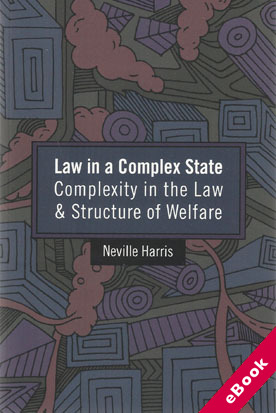We are now closed for the Christmas and New Year period, returning on Monday 5th January 2026. Orders placed during this time will be processed upon our return on 5th January.

The device(s) you use to access the eBook content must be authorized with an Adobe ID before you download the product otherwise it will fail to register correctly.
For further information see https://www.wildy.com/ebook-formats
Once the order is confirmed an automated e-mail will be sent to you to allow you to download the eBook.
All eBooks are supplied firm sale and cannot be returned. If you believe there is a fault with your eBook then contact us on ebooks@wildy.com and we will help in resolving the issue. This does not affect your statutory rights.
Approximately half of the total UK population are in receipt of one or more welfare benefits, giving rise to the largest single area of government expenditure.
The law and structures of social security are highly complex, made more so by constant adjustments as government pursues its often conflicting economic, political and social policy objectives. This complexity is highly problematic. It contributes to errors in decision-making and to increased administrative costs and is seen as disempowering for citizens, thereby weakening enjoyment of a key social right.
Current and previous administrations have had a commitment to simplify the benefits system. It is a specific objective underlying the introduction via the Welfare Reform Act 2012 of Universal Credit in place of diverse benefits, although it is not clear that the reformed system will be less complex legally and for citizens to access.
The book seeks to explain how and why complexity in modern welfare systems has grown; identify the different ways in which legal and associated administrative arrangements are classifiable as 'complex'; discuss the effects of complexity on the system's administration and its wider implications for rights and the citizen–state relationship; and consider the role that law can play in the simplification of schemes of welfare.
It makes reference not only to the UK welfare system but also relevant policies and experience in various other states.